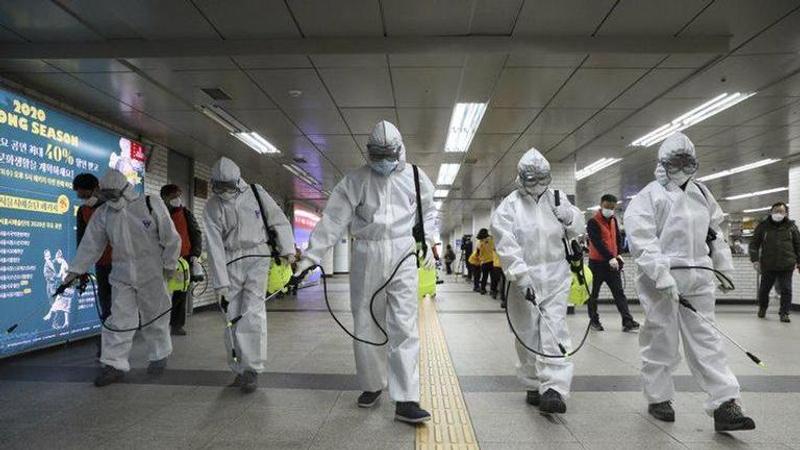Published 15:29 IST, March 11th 2020
Virus cluster around Seoul call center raises South Korea alarm
A virus cluster connected to a call center in one of the busiest areas of Seoul has raised alarms that South Korea's outbreak — thought to have been waning — has gained a foothold in the more populated capital region.

A virus cluster connected to a call center in one of the busiest areas of Seoul has raised alarms that South Korea's outbreak — thought to have been waning — has gained a foothold in the more populated capital region. More than half of South Korea’s 51 million people live in the Seoul metropolitan area.
So far, 93 people have tested positive among the call center's employees and their families, Seoul Mayor Park Won-soon said Wednesday in a briefing broadcast over YouTube. The number could grow as tests are being done on people who worked on other floors of the Korea Building in Seoul's Guro district.
While most of the infected workers live in Seoul, some of them commuted from nearby cities such as Incheon and Bucheon, raising concern about a broader spread through public transit.
Call center workers may be vulnerable because they work long hours in crowded and confined spaces, Yoon Tae-ho, an official from South Korea’s health ministry, said.
Park said Seoul is investigating the working conditions of more than 400 call centers in the city and will push employers to allow more employees to work from home. The mayor said authorities were responding actively so the cluster doesn't intensify like South Korea's earlier cluster around the southeastern city of Daegu.
Most of South Korea’s 7,755 cases of infection with the virus that causes COVID-19 illness have been in Daegu and nearby areas. Many were connected to the local branch of the Shincheonji Church of Jesus, and in the past week, health authorities completed testing thousands of members of the church.
South Korea's caseload is the fourth highest in the world after China, Italy and Iran. For most people, the virus causes mild or moderate symptoms, such as fever and cough, but severe illness is more likely among the elderly and those with existing health problems. More than half of the world's almost 120,000 people infected with the virus have recovered.
Much of South Korea’s anti-virus efforts has focused on isolating patients and tracing their contacts.
Since Saturday, people under self-quarantine have been required to use a smartphone app that reports their health status and alerts officials if they leave their quarantine areas. Strengthened laws on infectious diseases impose 1-year prison terms and fines for those who violate self-isolation.
Updated 15:29 IST, March 11th 2020




